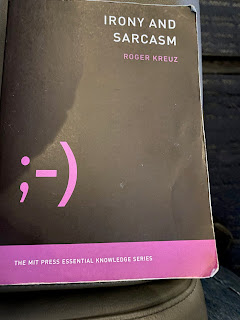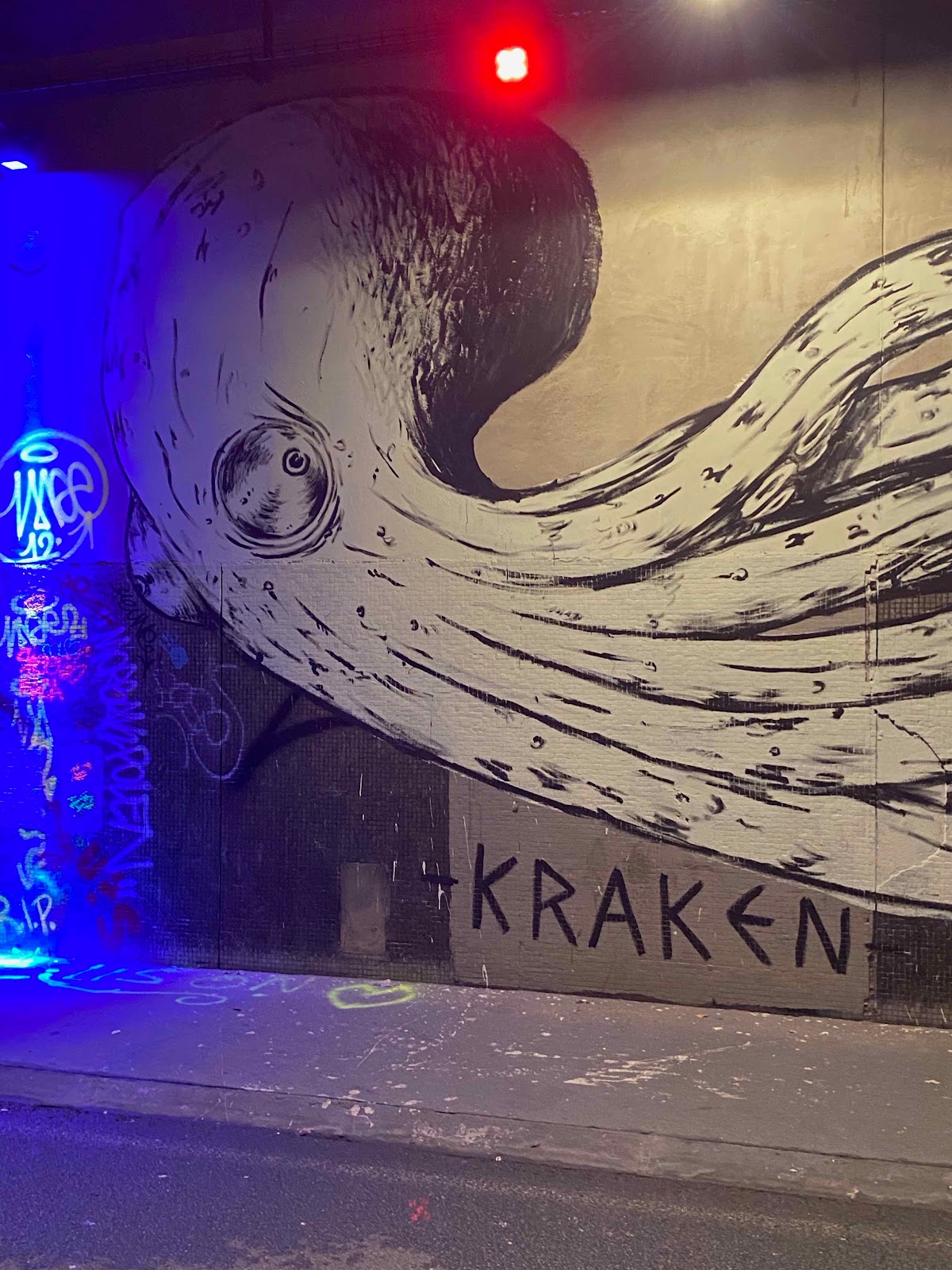Irony and Sarcasm by Roger Kreuz is the fourth book I have read in The MIT Press Essential Knowledge Series--69 books about technology and the philosophy of technology. The books examine a difficult and controversial topic from as many angles as possible in less than 200 pages.
In Irony and Sarcasm Kreuz covers the history of his topic beginning with Socratic Irony--arguably the smartest man who ever lived declaring he was ignorant. In the introduction, Kreuz makes clear why he wrote "a biography of two troublesome words" instead of just one: "Irony isn't a loner; it spends a lot of time in the company of a shady relative with a checkered reputation."
Kreuz carefully separates irony from sarcasm, and also from coincidence, paradox, satire and parody--all topics that are (ironically) confused with irony. In the first chapter, "Preliminaries," Kreuz begins with non-literal language:
If people only employed literal language,, communication would be devoid of nuance, innuendo, humor, and poetic turns of phrase.
Kreuz begins to define irony with Socrates and the rhetorical tactic that has come to be known as Socratic irony. The rest of the continues with examples of irony then moves to the death of irony (with an ironic smile I can almost see). Irony died after 9-11. Irony died with blizzard of lies from Trump and his many wannabes. It seems irony has died for centuries and never goes away.
No one ever predicts the death of sarcasm. To say "Irony is dead!" is almost always a sarcasm-tinged comment.
If you are nerdy about language, you (sincerely) will enjoy this book.
First 35 books of 2022:
Essential Elements by Matt Tweed
Les horloges marines de M. Berthoud
The Red Wheelbarrow and Other Poems by William Carlos Williams
The Road Less Traveled by M. Scott Peck
Cochrane by David Cordingly
QED by Richard Feynman
Spirits in Bondage by C.S. Lewis
Reflections on the Psalms by C.S. Lewis
The Pope at War: The Secret History of Pius XII, Mussolini, and Hitler by David I. Kertzer
The Last Interview and Other Conversations by Hannah Arendt
Galapagos by Kurt Vonnegut
The Echo of Greece by Edith Hamilton
If This Isn't Nice, What Is? by Kurt Vonnegut
The War That Made the Roman Empire: Antony, Cleopatra, and Octavian at Actium by Barry S. Strauss.
Civil Rights Baby by Nita Wiggins
Lecture's on Kant's Political Philosophy by Hannah Arendt
The Netanyahus by Joshua Cohen
Perelandra by C.S. Lewis
The Federalist Papers by Alexander Hamilton, James Madison and John Jay
First Principles by Thomas Ricks
Political Tribes by Amy Chua
Book of Mercy by Leonard Cohen
A Brief History of Earth: Four Billion Years in Eight Chapters by Andrew Knoll
Prisoners of Geography by Tim Marshall
Understanding Beliefs by Nils Nilsson
1776 by David McCullough
The Life of the Mind by Hannah Arendt
Civilization: The West and the Rest by Niall Ferguson
How to Fight Anti-Semitism by Bari Weiss
Unflattening by Nick Sousanis
Marie Curie by Agnieszka Biskup (en francais)
The Next Civil War by Stephen Marche
Fritz Haber, Volume 1 by David Vandermeulen






















































